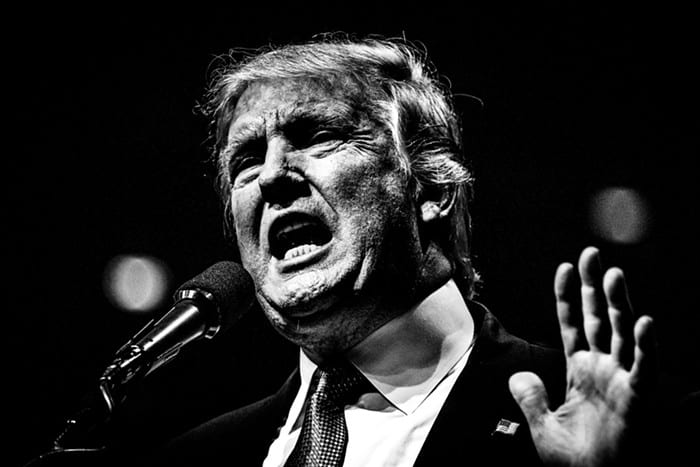By RICH LOWRY, Politico
The past two months of electoral losses for the Trump GOP feel very familiar.
Newly elected president Barack Obama’s party lost off-year gubernatorial elections in Virginia and New Jersey and suffered a stunning upset in a Senate race it had no business losing, in Massachusetts. Trump’s party lost off-year gubernatorial elections in Virginia and New Jersey and suffered a stunning upset in a Senate race it had no business losing, in Alabama.
We don’t know if Trump will experience a midterm shellacking on par with Obama’s in 2010, or, getting more speculative, go on to win reelection anyway. But every indication is that Obama and Trump are similar in that their signature politics work much better for them than their parties.
Both pioneered a different way of doing presidential politics, and built a new coalition for victory. But no one could replicate Obama’s model, and so far, no has shown any signs of successfully adapting to, let alone copying, Trump’s.
Other Democrats didn’t have Obama’s personal magnetism, or ability to present garden-variety liberal positions as a middle way born of excruciating thoughtfulness. They weren’t bonded to the base, and capable of turning it out in record numbers. They weren’t running elections nationwide where the so-called coalition of the ascendant could truly make its electoral presence felt.
Whenever Obama showed up to boost other Democratic candidates, nothing much came of it. His appeal simply wasn’t transferable.
As a result, the only Democrat left standing after the Obama years, was Obama himself. His party felt the full fury of the backlash against his agenda, while he, winning reelection handily on the strength of his core voters, was held harmless.
Trump could be creating a similar dynamic. His behavior is designed to make the other side fear and hate him as much as possible. The president finds this entertaining, and it has the added advantage of convincing his voters that, whatever his other flaws, Trump has “the right enemies.”
The problem is that all the people stirred up into a lather of anti-Trump loathing might want to do something with all their pent-up energy — like vote. With Trump nowhere near a ballot for the next three years, the only alternative is to take it out on the nearest person with an “R” next to his name.
Ed Gillespie ran away from Trump and lost in Virginia. Roy Moore ran toward Trump (with a lot of excess baggage) and lost in Alabama. One was a wonky establishment Republican careful to sand away any hard edges in his political persona; the other was an obstreperous and ignorant insurgent Republican who prided himself on his outrageousness. It didn’t matter.
They both were defeated the same way, holding their own Republican voters, but getting overwhelmed by a tide of millennials, suburbanites and minorities motivated by their abiding animus toward Trump.
The backlash that conventional wisdom thought Trump would create among these voters in 2016, to his own detriment, is coming about in 2017, to the detriment of his fellow Republicans. They can’t rely on the circumstances or the personal qualities that helped Trump get over the top last year.
They don’t have the luxury of losing the popular vote and still winning elections.
They don’t have the back-against-the-wall aspect of last year’s presidential race, when the only alternative to Trump was 12 uninterrupted years of Democratic control of the most powerful office in the land, leading voters to overlook Trump’s flaws.
They don’t have the advantage of running against a historically bad candidate in Hillary Clinton.
Finally, they don’t have Trump’s star power, brazen self-confidence, gonzo sensibility, knack for diminishing opponents, shrewd innate sense for culture war politics, and dominance of and understanding of the media. And none of them ever will.
This gets to the idiocy of Steve Bannon’s project to try to run Trump-like insurgents everywhere. Bannon is trying to recapture the magic of 2016, without the one indispensable ingredient — Trump himself.
In his appearances for Moore, Bannon kept reaching back for the glory days of 2016 when everyone deserted Trump after “Billy Bush weekend” and only the true and farsighted loyalists, i.e., Bannon himself, saw it through. It was, as a matter of fact, a minor miracle that Trump survived the release of the “Access Hollywood” tape; it is doubtful that anyone besides Trump possibly could have done it.
Yet Bannon seems to have drawn the lesson from Trump’s once-in-a-generation political high-wire act that if a candidate exists under an ethical cloud, it is some sort of recommendation. And to believe — because Trump was widely dismissed and won anyway — that he can glom on to any loathsome charlatan and ride him to victory.
Trump himself labors under an unrealistic view of the meaning of 2016. Just because he won the presidency when he had an approval rating in the 30s, it doesn’t mean it’s a good idea to stay in the 30s. In the Alabama exit polls, Trump’s approval rating was 48 percent; if it had been 51 percent, it might have been enough for Moore to win.
With the right opponent and the right conditions in 2020, Trump may be able to win reelection — after his party gets decimated underneath him. We’ve seen this movie before.



















